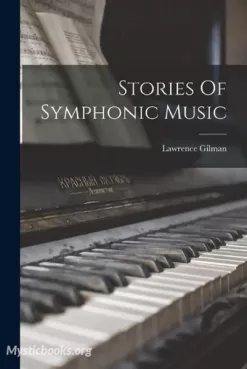
Timeline
Title
Country/Nationality
Lawrence Gilman
Lawrence Gilman (1878-1939) was a U.S. author and music critic. He is considered one of the most influential music critics of the 20th century. Gilman was known for his erudite and insightful essays, which often explored the philosophical and aesthetic dimensions of music. He was also a passionate advocate for new and innovative music, and he helped to introduce many important composers to American audiences.
What were Lawrence Gilman's principles?
Gilman was a firm believer in the importance of critical thinking and independent judgment. He believed that music critics should not simply parrot the opinions of others, but should develop their own unique perspectives. He also believed that critics should be objective in their assessments, and that they should avoid letting their personal biases influence their opinions.
What was Lawrence Gilman famous for?
Gilman was famous for his ability to write about complex musical concepts in a clear and accessible way. He was also known for his deep knowledge of music history and his ability to connect historical perspectives to contemporary artworks. Gilman was particularly interested in the music of the late 19th and early 20th centuries, and he wrote extensively about composers such as Richard Wagner, Gustav Mahler, and Arnold Schoenberg.
What were Lawrence Gilman's notable works?
Gilman's most notable works include:
- Music and Life (1908): A collection of essays on a wide range of musical topics, from the nature of music to the role of the critic.
- Wagner and the Romantic Drama (1910): A study of Wagner's operas, which examines their musical and dramatic qualities.
- Sensuous and Intellectual Beauty in Music (1914): A collection of essays on the relationship between music and the senses.
- Opera as Drama (1918): A study of opera, which argues that opera is a form of drama that should be judged on its own terms.
- Richard Strauss: A Critical Study (1925): A study of the music of Richard Strauss, which examines his development as a composer.
What was Lawrence Gilman's philosophy?
Gilman's philosophy of music criticism was based on the belief that music is a complex and multifaceted art form. He believed that music critics should not simply focus on the technical aspects of music, but should also explore its emotional, intellectual, and spiritual dimensions. Gilman also believed that critics should be open to new and innovative music, and that they should not be afraid to challenge the status quo.
When did Lawrence Gilman die?
Lawrence Gilman died on September 8, 1939, at the age of 61. He died from complications of diabetes.
How is Lawrence Gilman remembered?
Lawrence Gilman is remembered as one of the most important and influential music critics of the 20th century. His essays are still widely read and studied today, and his insights into music continue to be relevant. Gilman is also remembered for his commitment to critical thinking and independent judgment. He was a fearless critic who was not afraid to challenge the status quo.
Anything interesting to know about the author?
Lawrence Gilman was a complex and fascinating individual. He was a voracious reader and had a wide range of interests, including music, literature, philosophy, and art. He was also a social activist and was involved in a number of causes, including pacifism and women's suffrage. Gilman was a deeply passionate individual, and his passion for music and for life is evident in his writings.
Conclusion
Lawrence Gilman was a towering figure in the world of music criticism. His essays are still widely read and studied today, and his insights into music continue to be relevant. Gilman was a fearless critic who was not afraid to challenge the status quo. He was also a deeply passionate individual, and his passion for music and for life is evident in his writings.
Books by Lawrence Gilman

Stories of Symphonic Music
Close your eyes and imagine the sound of a symphony orchestra in full swing. Can you feel the power and emotion of the music? Stories of Symphonic Music by Lawrence Gilman is a collection of essays that invites the reader to explore the world of cla...